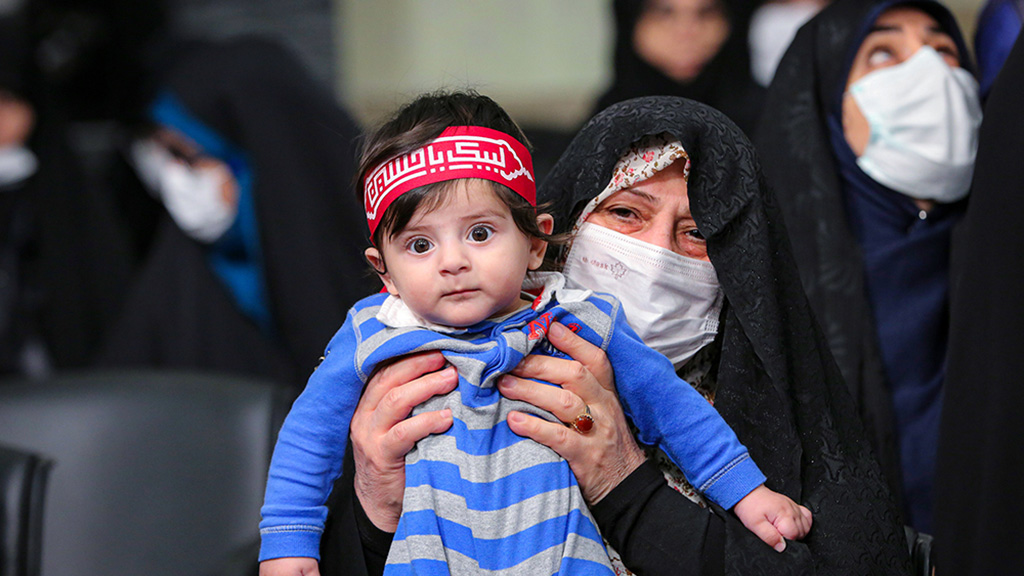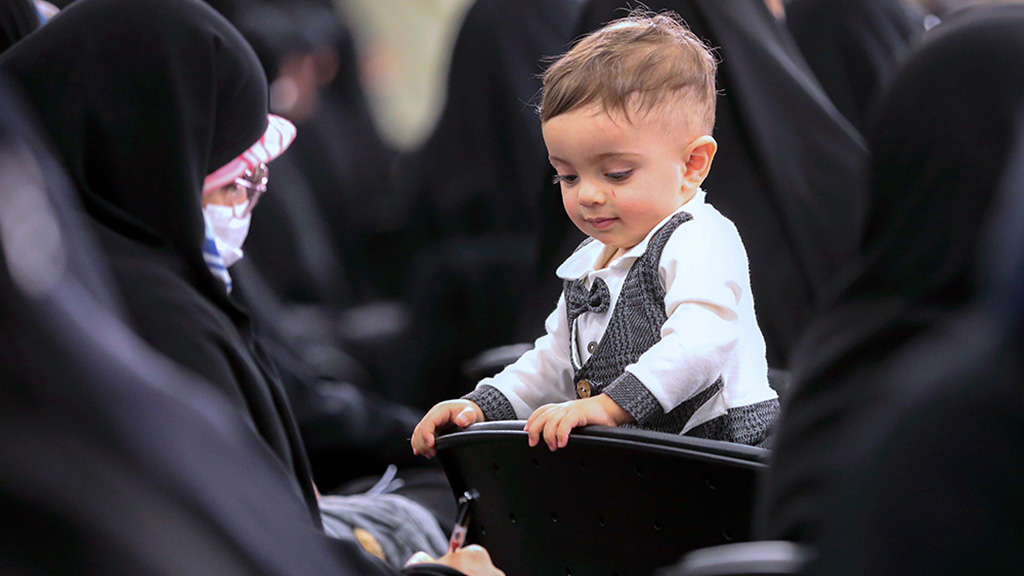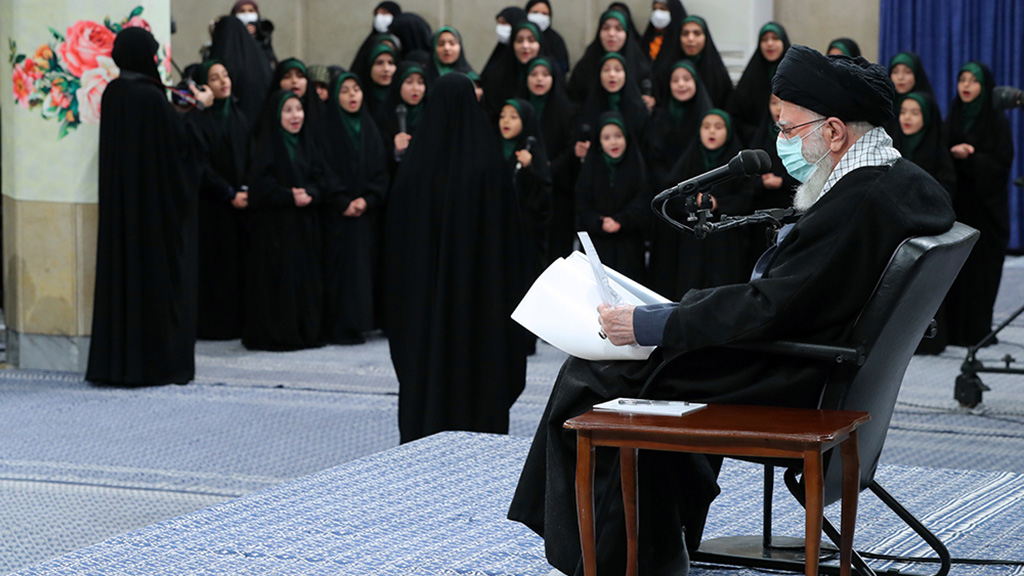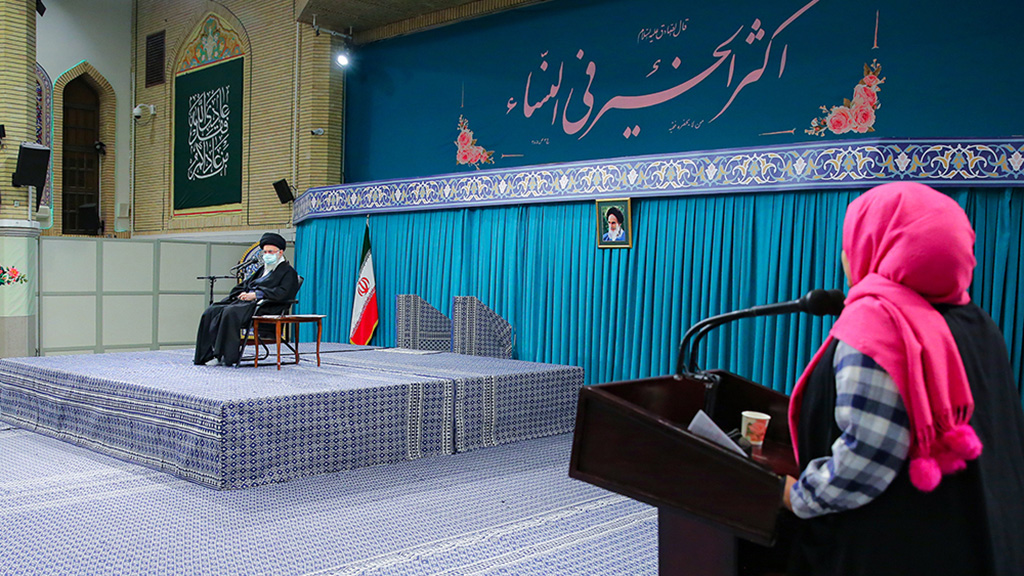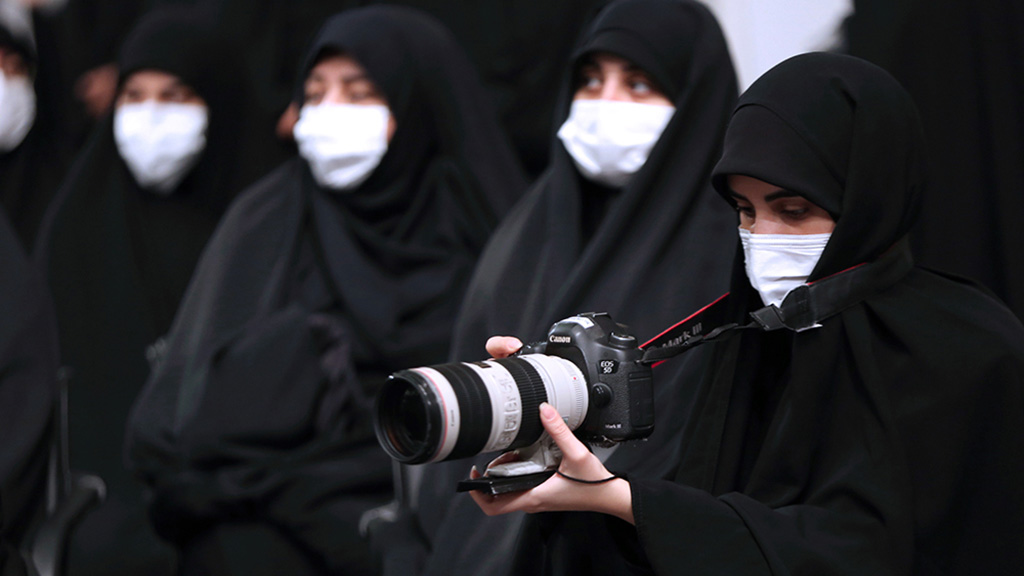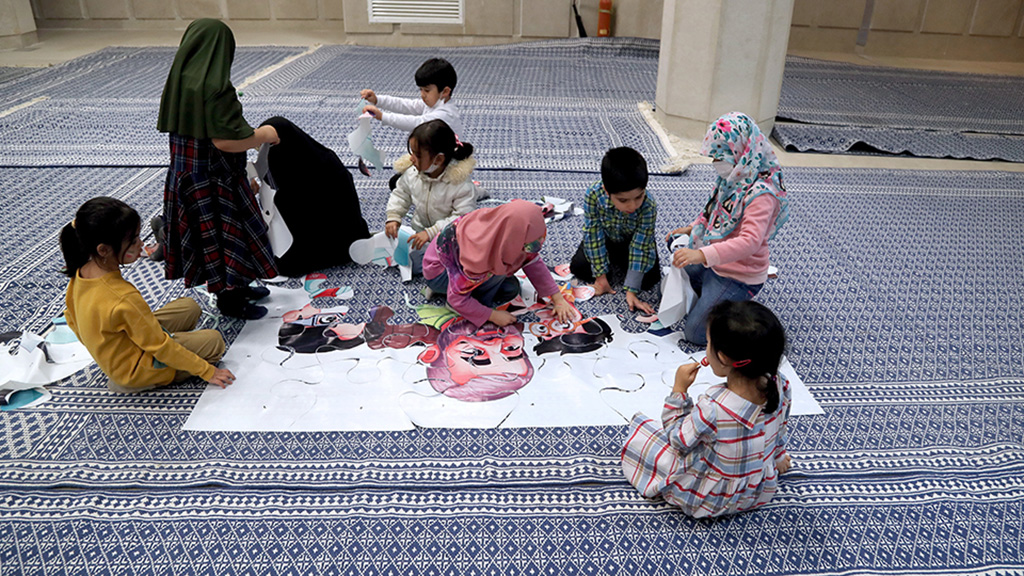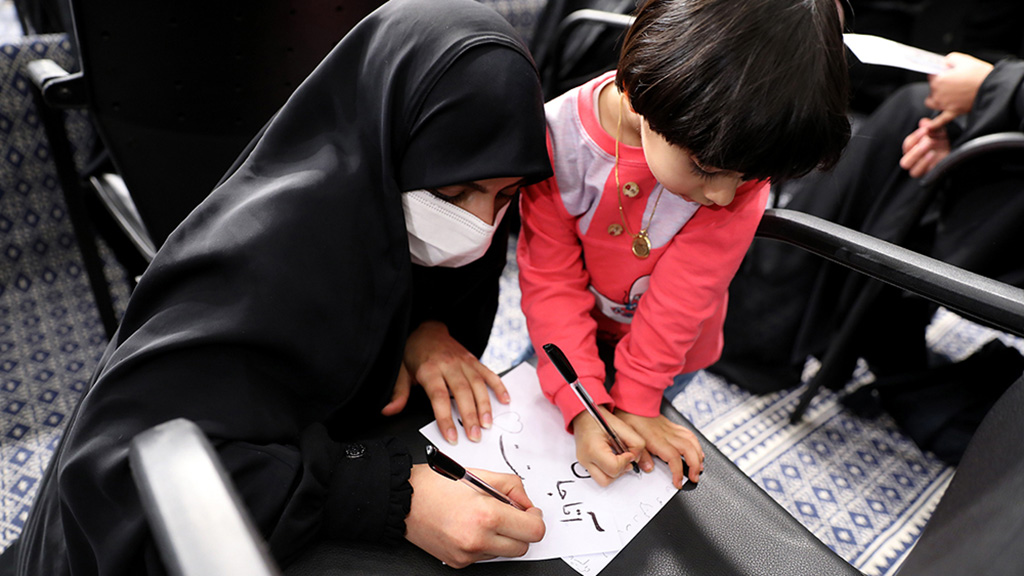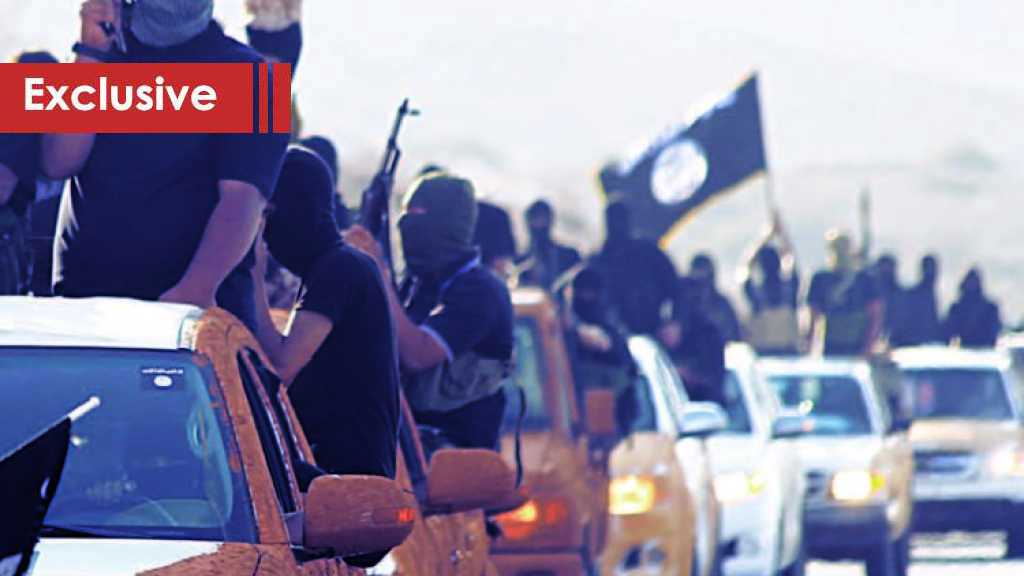
In the Presence of Imam Khamenei: The Leader’s House Is Like a Father’s House
By Al-Ahed News
Tehran – The courtyard in front of the main entrance to the Imam Khomeini Husseiniya was crowded. Mothers sat in rows and served breakfast to their children. The host offered cookies and milk, and the children and their mothers experienced a taste sweeter than honey.
The children ate the cookies quietly. While they ran in the yard, they accidentally dropped crumbs on the floor. None of them felt estranged. They felt as if they were guests at their grandfather's house and had been comfortable for a long time.
Some mothers tried to gather the cookie crumbs by sweeping the rugs on the floor. The warm atmosphere filling the air turned the day into one of the most unique in the lives of many attendees who grew up under the fatherly umbrella of the Leader.
This place is engraved in the hearts of the Iranian people. Anyone who came before me and those who come after me will regard it as their father's house. The children's sense of comfort and the mothers’ sense of duty towards keeping the house clean also stem from this belief.
It seemed that a mother was spreading a small, seemingly empty blanket on the floor to tidy it up. But she was actually trying to wrap her sleeping baby in the blanket. The baby was still very small and made the blanket appear empty.
One lady asked the mother: "How old is he?"
The mother replied, "five days."
Another woman said: "Mashallah, five days! He doesn’t look it."
The mother finished what she was doing and answered her: "I cannot leave a five-day-old baby. In addition, I would like him to breathe the air of this Husseiniya. He will be a soldier for the leader of this Husseiniya, God willing."
Another woman joined the conversation and said, "You did well bringing him with you. This is how we raised our children. [We took them with us] to marches in the snow and under the rain, bombs, and missiles [the Sacred Defense stage] for them to get acquainted with the Islamic Revolution, the leader, and his approach.”
Then, she pointed with her hand to the inside of the Imam Khomeini Hussainiya and continued: "Children are made in and from this Hussainiya."
I passed by the mothers who were still feeding their children, then entered the Husseiniya. An inscription on the wall immediately caught my eye: “Most of the good is in women.”
As always, the writing on this mural highlights the focus of the gathering. A hadeeth by Imam al-Sadiq [PBUH] was specially placed on the wall to decorate and convey the message of this meeting.
I sat on one of the chairs and looked at the rest of the attendees. Some came to the Husseiniya earlier. Others woke up before their usual routine and queued in line to enter. All of them were awaiting the arrival of their dear host with longing and enthusiasm.
The wait did not last long.
The rows of chairs were quickly filled, and the remaining attendees leaned on the wall of the Husseiniya. They were not discouraged by the lack of chairs and were determined to sit on the floor or stand by the wall until the end of the meeting.
This generation of women looks up to the host as a dear father.
His Eminence entered through the door, with the attendees raising their clenched fists and repeating the slogan loudly: “We are your soldiers, O Khamenei. We obey your command, O Khamenei”.
A group of women collapsed with tears streaming down their faces. This was not the first time that this Husseiniya has witnessed a special meeting where women talk to the Leader about their thoughts without any hindrance, get to express their pain, feelings, and demands, and ask him questions.
Nevertheless, such meetings leave a special sweetness in the hearts of those attending since some of them wrote letters last year asking that the celebration of Lady Zahraa’s birthday be marked with the presence of maddahis.
They also asked the Leader of the Revolution to hold a special meeting for women, and here he was. His Eminence at their service.
The speakers included a diverse spectrum of individuals, in terms of knowledge, activities, and interests, and in terms of clothing and appearance.
One lady, wearing an abaya, eloquently complained that fewer women were employed in making major decisions in the country. Another, wearing a pink scarf, raised the demands of housewives.
The presence of people like Maryam Nakhashan was especially important. She is a first-class lawyer with a law degree from Germany. There was also Mahdia Sadat Mehwar, a producer, director, and cultural activist.
She said that she entered the field of cultural activities because she was influenced by one of the speeches of the Leader of the Revolution in the early nineties.
She considered herself the fruit of this movement and the fruit of this country. Then, she compared the role of women and their rights in the Islamic and Western civilizations and how it affected the absence of women in various cultural fields that cause problems more than anything else. What she said received the praise and support of His Eminence, the Leader of the Revolution.
Under the encouragement of the revolution and the self-confidence it gave them and the right path that guided them, the speakers freely shared their opinions and ideas with their Leader, whose attention and respect encouraged each one of them.
Important points were raised that were worth thinking about. Yet, the meeting was nothing like traditional formal meetings. It was more like the daughters of a family sat around their father to talk to him and tease him. So much so that one of the Arabic-speaking attendees, who was not on the list of speakers, also seized the opportunity and recited verses of poetry in Arabic praising Haj Qassem. She sent greetings to the people of Khuzestan in the language that the Leader of the Revolution considers the most beautiful.
One of the beneficial aspects of the meeting was the presence of different Iranian ethnic groups – Persians, Turks, Kurds, Lurs, Arabs, Baluchis, Bakhtiaris, Turkmens, Luks, Gilaks, Maznises, and Sistanis. Some of them wore traditional outfits reminiscent of their culture. Others wrote phrases expressing the greetings of their ethnic groups and provinces in the palm of their hands, as they gathered under one roof and were overwhelmed with longing for the Leader's words.
The comfort of those present, the level of knowledge of the speakers, and the humility of the Leader of the Revolution drew a beautiful picture. Imam Khamenei, at the beginning of his speech, expressed several times his comfort in holding such a meeting. His Eminence also expressed his satisfaction, which indicated his humility and how he benefitted from the words of the representatives of the women.
After that, the Leader began his speech by explaining and summarizing the current situation of women in the world and the Islamic principles related to them. He made several points and cited previous speakers. This underscored the accuracy of his follow-up to the topics and his exemplary sophistication.
Despite the fact that the Leader's speech was deep and accurate, it was full of softness and expressions of kindness and tenderness that he used when addressing his daughters. His words were remarkably warm and those listening never got tired.
His Eminence spoke for an hour that benefited the attendees for a lifetime. The Leader of the Revolution spoke about family and its importance. He stood as a father to all his daughters, whether those present at the meeting or those who will read the speech or listen to it later.
They listened to these important words, in which he highlighted the unique characteristics of a woman as a wife and a mother within the family unit. Therefore, she is the air the family breathes and cannot live without.
At the same time, His Eminence mentioned that managing a home does not mean being confined to it and dealing with emotions. Instead, it must be understood in its correct form: not neglecting the home, the family, and the basic needs of children in terms of education, faith, and morals.
In conjunction with activism in society, efforts must be made to raise public and even global awareness to explain the reality for women and for attention to be placed on whatever duties or desires they feel.
Time flew by, and it was time to say goodbye and end the speech. At the end of the meeting, Imam Khamenei mentioned a nice anecdote about a few women who might violate the rights of their husbands, which made those present laugh.
This anecdote came after his careful observation about the oppression of some women by the hoarse voices of men, their vast stature, and physical strength. He also highlighted the need to firmly apply Islamic rules and legislation to protect women.
The Leader then got up, and the ladies stood up to pay their respects. However, no one wanted to leave. Out of respect for his daughters, His Eminence stood longer than usual as his meetings ended.
Some of the women chanted slogans, others waved their hands, some carried their children in their arms so that they could enjoy looking at the face of their Leader in the last moments of the meeting. Others stood on their chairs for a final glimpse of their Leader.
Some had tears flowing down their faces just like when His Eminence first appeared. The only difference now was that these tears were filled with joy as well as a deep longing that afflicted their hearts from that moment on.
Comments

